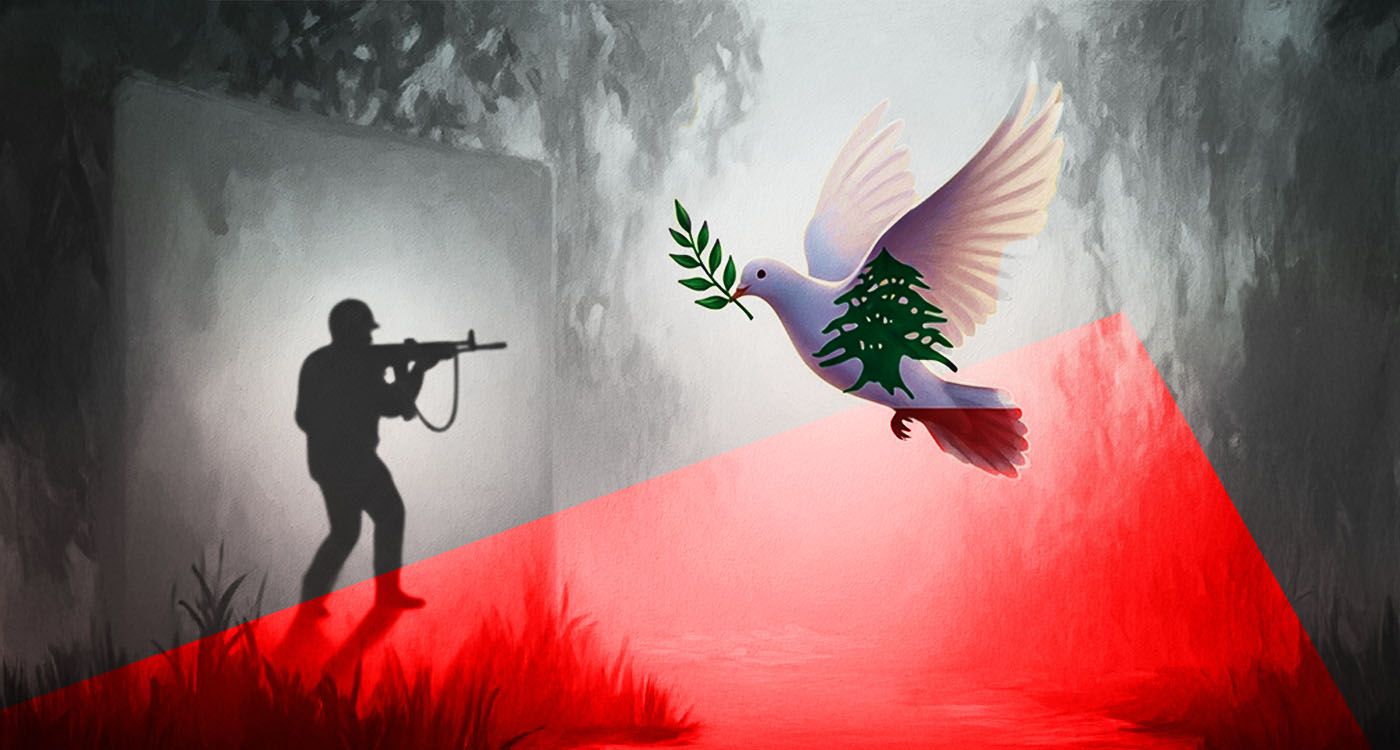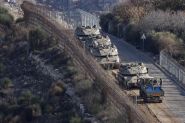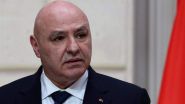
Hezbollah and Berri likely hope to use talks to get the US and Israel off their backs and keep Hezbollah armed.
President Joseph Aoun said Lebanon has no choice but to enter into talks with Israel to break the cycle of war, a step that media reports suggest he had agreed on with Hezbollah’s ally, Speaker Nabih Berri. Aoun’s position is commendable, but Hezbollah will use such talks as cover to rearm and prepare for another round of fighting, rather than to bring war to an end.
To give Aoun credit where it is due, he has become the first president to make talking to Israel—rather than “resisting” and “boycotting” the Jewish state—the centerpiece of his foreign policy. Now comes the hard part.
Talks with Israel require an agenda and a goal. Under current proposals, Lebanese “civilian technical experts” will join the Pentalateral Committee that includes militaries of Lebanon, Israel, the US, France and the UN. The committee was formed in November 2024, when Lebanon and Israel signed the Cessation of Hostilities Act that ended the war that Hezbollah had launched on Israel a year earlier. Its goal was to supervise the mechanism of the enforcement of UNSC Resolution 1701, which stipulates the disarmament of Hezbollah across Lebanon. Henceforth, the committee came to be known as the Mechanism.
Now Lebanon wants to add civilian “technical experts” to its military officers on the Mechanism, with the assumption that such experts can demarcate the land border with Israel. The maritime border was agreed upon by a similar Lebanese delegation of military officers and civilian figures in 2022.
With borders demarcated, the remaining contentious issues between the two sides will be narrowed down to the pending disarmament of Hezbollah, Israel’s withdrawal from five Lebanese hilltops, and its release of Hezbollah fighters. During a meeting with Mechanism last week, US envoy Morgan Ortagus said that the disarmament of Hezbollah should be concluded by the end of this year. In a statement last week, the Mechanism advocated the disarmament of Hezbollah by the end of this year.
In theory, Lebanon and Israel look well on their way to peace. In reality, however, that is not the case. Hezbollah and Berri seem amenable to Aoun’s initiative, likely hoping to use the talks to get the US and Israel off their backs. In doing so, Lebanon could get away without enforcing Resolution 1701, allowing Hezbollah to remain armed. State sovereignty will remain compromised.
Hezbollah, in effect, is taking a page out of the playbook of late Palestinian chief Yasser Arafat and Syrian President Hafez Assad: transform the peace process into an open-ended exercise while maintaining the status quo. Arafat and Assad talked until everyone dropped dead, literally, giving negotiations their derogatory term “peace processing.”
Knowing that Israel and the world were eager to achieve peace, Palestinians started using talks for their own leverage. Every time Washington or Jerusalem applied pressure on Arafat to rein in Hamas’s terrorism, he boycotted the peace talks but never ended them. With Arafat’s successor Mahmoud Abbas, talks stalled and died.
No one knows whether the Palestinian Authority (PA) today still upholds the interim peace agreements it signed with Israel. The existence of the PA itself is contingent on these deals, but everything Ramallah says suggests that they regret peace talks and the idea of the two-state solution and that they want one state—Palestine—from the river to the sea.
It is most likely that Hezbollah will try to hide behind Aoun’s talks with Israel to mimic the Palestinian tactic: use talks to relieve American pressure and stall, all while rearming, reorganizing and preparing for another round of war.
Hezbollah’s ploys should not take away from Aoun’s significant step of supporting talks with Israel. There are three approaches in foreign relations, Aoun told a group of visitors—war, economics and diplomacy. Since war with Israel did not pay off, what next? Aoun argued that wars always end through talks, and negotiations are usually between enemies, not friends or allies.
Since his election almost a year ago, Aoun has taken a few wrong turns. But he has been courageous enough to go to places no one has gone to before him, risking his political credibility and probably his life, betting on ending war with Israel through talks.
Coupled with the Mechanism’s statement endorsing Hezbollah’s disarmament by the end of this year, Aoun’s drive for talks with Israel means Lebanon has finally positioned itself on the right track. Fingers crossed that Beirut will start rolling soon.




Comments